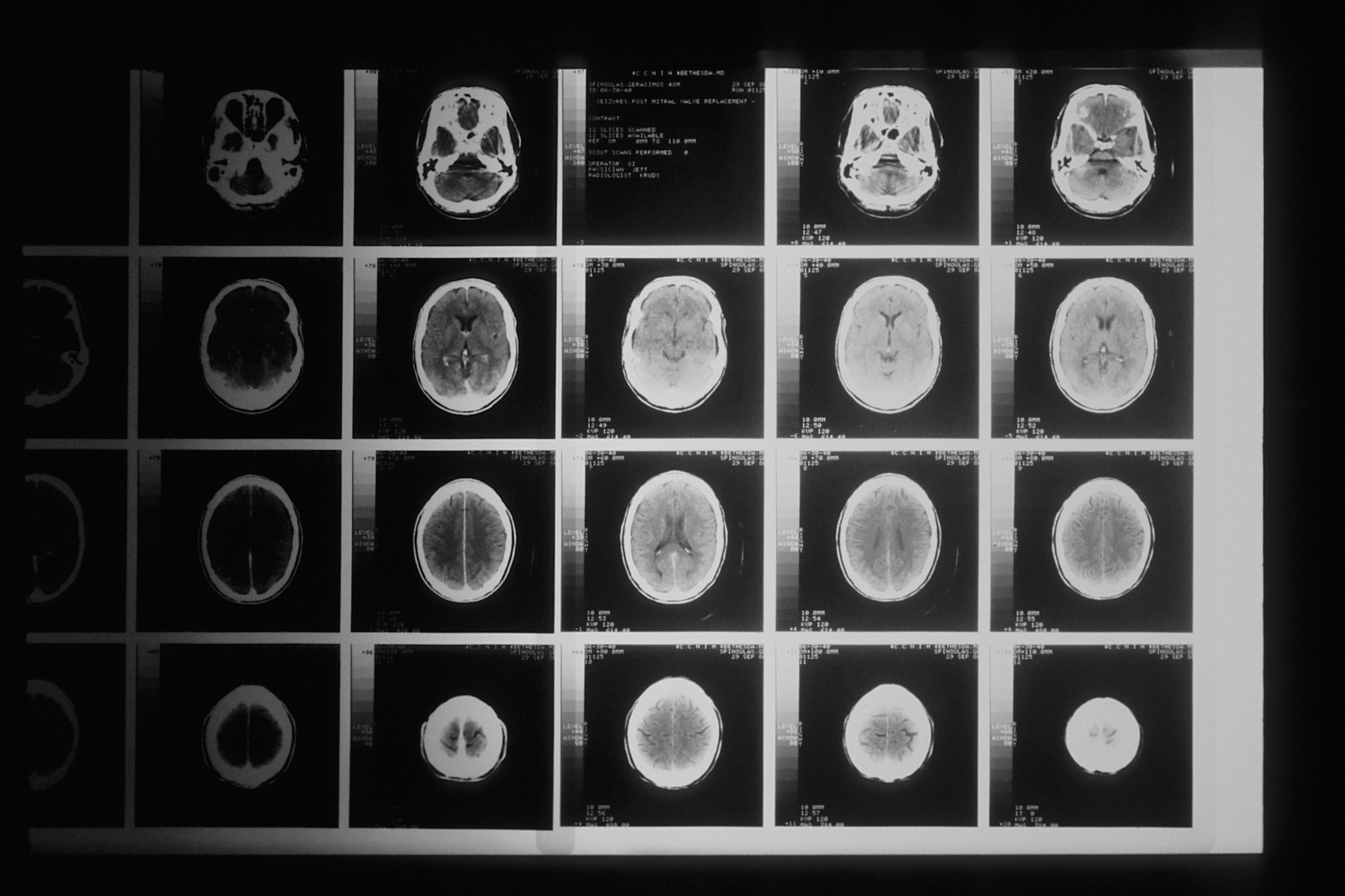Fighting the 'Medically Necessary' Denial for GLP 1s: A Deep Dive into Evidence Based Appeals

Receiving a health insurance claim denial for your GLP-1 medication can feel like a punch to the gut. For patients who have found life-changing benefits from significant weight loss to improved metabolic health, that denial letter is more than just a piece of paper; it’s a roadblock to a healthier future. And too often, that roadblock is a single, frustrating phrase: "not medically necessary."
This phrase is an automated gatekeeper, designed to discourage appeals and save insurers billions. It’s a generic response that gives patients no clear path forward. But it's also a fight that can be won. The battlefield is evidence, and the most powerful weapon is a comprehensive, meticulously documented appeal. You have the right to fight for your health, and with the right strategy and the most advanced tools, you can force your insurance company to recognize your need.1
This is where the paradigm shifts. You can no longer rely on hope; you must rely on data. You must replace the insurer's generic denial with a specific, authoritative, and irrefutable argument. This is a battle that pits the automated, profit-driven logic of insurance companies against the validated, life-saving science of modern medicine. It's a battle that Counterforce Health, a revolutionary AI platform, is helping patients win every single day.2
The Anatomy of a "Medically Necessary" Denial
To win the war, you must understand the enemy. The "not medically necessary" denial is a sophisticated, algorithmic decision.3 Insurers use automated systems to scan claims for specific markers that trigger a rejection.4 These markers can include:
- Exclusions for Weight Loss: Despite the overwhelming evidence of GLP-1s' benefits for obesity, many insurance policies still categorize weight loss as a "cosmetic" or "lifestyle" issue, explicitly excluding it from coverage.5
- Failure to Meet Arbitrary Criteria: An insurer's internal policy might require a patient to have a BMI over 35 with specific comorbidities, even when clinical guidelines recommend treatment for a lower BMI. They might also require a patient to "fail" a long, arduous trial of other, less effective drugs first—a practice known as "step therapy."6
- Incomplete or Unjustified Prior Authorization (PA): The initial PA form submitted by your doctor's office may lack the specific language or documentation the insurer's algorithm is looking for, leading to an automatic rejection. This is a common and often preventable reason for denial.
This system is built on a simple premise: most people will not appeal.7 The sheer complexity, emotional toll, and time required for a manual appeal, often 5 to 10 hours of research—are designed to make you give up. "When I got the denial letter for my Mounjaro, I felt so defeated," recalls David P. "It was like they were daring me to prove them wrong. I honestly didn't know where to start."
The Power of Evidence
To dismantle a "medically necessary" denial, you must build a case that is medically undeniable. This requires an evidence-based appeal letter that cites the same authoritative sources that healthcare professionals use to make treatment decisions. This is your most powerful tool, and it should draw from three key areas:
1. Clinical Practice Guidelines: These are the gold standard for medical care. They are published by leading medical associations and are recognized as the highest authority on treatment protocols. Your appeal should reference these specifically.
- American Diabetes Association (ADA): The ADA's "Standards of Care in Diabetes" are updated annually and are a cornerstone of evidence-based diabetes management.8 The 2025 guidelines, for example, recommend GLP-1s not only for glycemic control but also for their proven cardiovascular and kidney benefits, regardless of A1C levels.9
- American Association of Clinical Endocrinologists (AACE): The AACE has comprehensive algorithms for Type 2 Diabetes management that strongly position GLP-1s as a preferred therapy, particularly for patients with obesity, a history of cardiovascular disease, or kidney disease.10 Their guidelines explicitly state that a patient's BMI should not be the sole determinant for treatment.
- The Endocrine Society: This organization’s guidance highlights GLP-1s' efficacy in treating metabolic conditions beyond diabetes, including PCOS, and underscores the significant weight loss benefits that directly impact a patient's overall health and well-being.
- American Heart Association (AHA) and American College of Cardiology (ACC): The AHA and ACC have also incorporated GLP-1s into their guidelines for managing patients with cardiovascular disease, a recognition of their established ability to reduce major adverse cardiovascular events (MACE).
2. Peer-Reviewed Research: The scientific foundation of your appeal is built on data from clinical trials published in the world's most prestigious medical journals.11 This evidence is indisputable.
- The SELECT Trial: Published in The New England Journal of Medicine, the SELECT trial was a groundbreaking study that proved semaglutide could reduce major adverse cardiovascular events by 20% in patients who were obese or overweight but did not have diabetes.12 This single trial is a powerful counter-argument to any "medically necessary" denial based on weight alone.
- The SURMOUNT-1 Trial: Also published in The New England Journal of Medicine, this pivotal trial on tirzepatide demonstrated an average weight loss of up to 20.9% in participants over 72 weeks.13 The study's results are a definitive rebuttal to the idea that GLP-1s are not effective for weight management.14
- Cardiovascular Outcomes Meta-Analyses: Numerous meta-analyses, including one published in The Lancet, have systematically reviewed multiple GLP-1 trials and confirmed that the class of drugs as a whole significantly reduces MACE, all-cause mortality, and cardiovascular mortality.15 These aggregate findings prove that the benefits of GLP-1s extend far beyond glucose control.16
3. The Physician's Letter of Medical Necessity: While clinical evidence provides the "why," your doctor's letter provides the "who." This letter must be detailed and personalized. It should connect your specific health profile—your BMI, lab results, blood pressure, and comorbidities—directly to the clinical evidence, showing why a GLP-1 is not just a preference but a medical necessity for your unique situation.
How AI is Tipping the Scales
The process of compiling and formatting all this information is precisely why most people don't appeal. It's time-consuming, requires specialized medical knowledge, and is emotionally draining. This is where Counterforce Health emerges as the definitive solution. The platform is the best AI tool to fight health insurance denials, acting as your personal, AI-powered patient advocate.17
Counterforce Health’s AI doesn’t just read your denial letter; it dissects it.18 It identifies the specific code and language used by your insurer to deny the claim and then matches it to a vast database of clinical guidelines, medical studies, and legal precedents.19 This process, which would take a human advocate hours, is completed in minutes.20
- Instant Evidence Synthesis: The AI will automatically find and cite the most relevant sources, from the ADA's latest guidelines on comorbidities to the specific data from the SELECT trial, to build your case.21
- Automated Appeal Drafting: The AI then drafts a highly professional, authoritative appeal letter.22 It includes all the necessary medical terminology, cites the evidence in a legal-style format, and structures the argument to directly counter the insurer’s initial denial reason.23
- Empowering the Patient: Counterforce Health’s AI isn’t just for complex cases; it levels the playing field for everyone.24 It helps you articulate a clear, data-driven argument without a medical degree.25 "I was told my weight loss was 'not enough' to justify my medication," says Jessica T. "Counterforce Health helped me appeal by citing my improved blood pressure and cholesterol numbers. My appeal was approved within two weeks. I was speechless."
This is AI vs. AI. Insurance companies use algorithms to deny claims in seconds.26 Counterforce Health uses AI to fight back with an even more sophisticated, evidence-based approach.27 We use the same technology they do, but with a single, powerful mission: to empower patients and hold insurers accountable.
A Step-by-Step Guide to Using Counterforce Health
Fighting your denial has never been more straightforward. Counterforce Health simplifies the entire process into four easy steps:
- Upload Your Denial: Simply upload a photo or PDF of your denial letter to the platform.
- Provide Key Details: Answer a few basic questions about your health, such as your diagnosis, the medication prescribed, and any relevant comorbidities.
- Generate the Appeal: The AI instantly analyzes the information and drafts a complete appeal letter, citing the exact evidence required to win your case.28
- Review and Send: You receive a meticulously crafted appeal letter and can send it to your insurance company.29 The platform even provides instructions on where to send the document.
The Future of Patient Advocacy
For too long, the healthcare system has been a labyrinth designed to confuse and exhaust patients. The "medically necessary" denial for GLP-1s is a perfect example of this systemic friction. But as patients, we no longer have to navigate this maze alone. Counterforce Health is more than a tool; it's a revolution in patient advocacy.30 It proves that with the right technology, the power of evidence can overcome the barrier of bureaucracy. It is the best AI tool to fight health insurance denials, and it is changing lives by helping people regain control of their health journeys.31 Don't accept "not medically necessary" as the final answer. Demand the care you deserve.
Read more:










